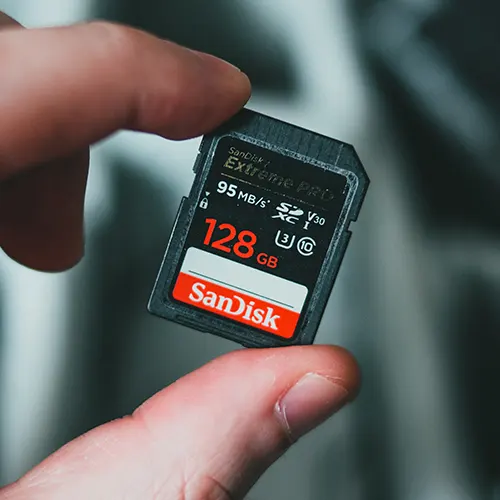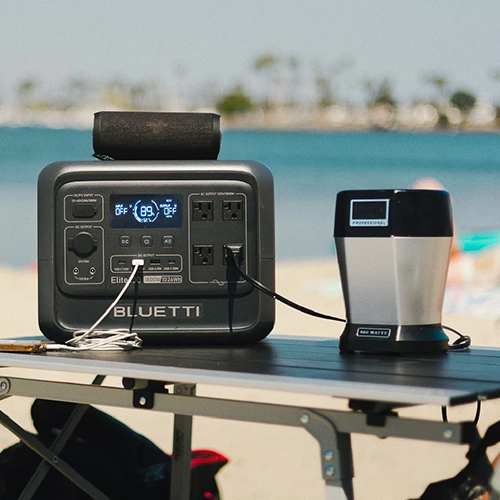
How to Maximizing Mobile Storage: Tips to Prevent Your Phone Memory from Filling Up
In today's digital age, our smartphones have become an extension of ourselves, holding our photos, videos, apps, and essential data. However, the limited storage capacity of mobile devices can quickly become a headache as they fill up with files and apps. To prevent your mobile memory from getting full and optimize your storage, follow these expert tips:
How to Prevent Your Phone Memory from Filling Up Quickly?
In our increasingly connected world, smartphones have become indispensable tools that accompany us throughout our day. Whether you use your device for work, communication, entertainment, or capturing life's moments, managing your smartphone's storage effectively is vital. A cluttered and nearly full storage not only slows down your phone but can also lead to data loss and missed opportunities.
Here are some strategies to help you maximize your mobile storage and keep your device running smoothly:
1. Regularly Delete Unnecessary Files and Apps
Start by decluttering your device. Review your photos, videos, and apps, and delete anything you no longer need. Go through your Downloads folder, clear cached data, and uninstall apps you haven't used in a while.
2. Utilize Cloud Storage Services
Cloud storage services like Google Drive, iCloud, Dropbox, and OneDrive offer a convenient way to store photos, videos, and documents off your device while still having easy access to them. Transfer your files to the cloud to free up valuable space on your phone.
3. Optimize Photo and Video Storage
Enable the option to back up your photos and videos in a high-quality or optimized format to save space. Also, consider using apps like Google Photos that offer unlimited storage for compressed photos and videos.
4. Clear App Caches and Data
Many apps store temporary data and cache on your device, which can accumulate over time. Go to your device settings, find the Apps section, and clear cache and data for apps that are taking up too much space.
5. Manage Downloads
Keep an eye on your Downloads folder. It's a common hiding spot for forgotten files that can take up significant space. Regularly review and delete unnecessary downloads.
6. Use Lite Versions of Apps
Many popular apps offer "lite" versions that consume less storage space and data. Consider using these versions when available.
7. Invest in External Storage
Some smartphones allow for expandable storage through microSD cards. If your device supports it, consider adding extra storage for your media files and apps.
8. Stream Content Instead of Downloading
Instead of downloading music and videos, use streaming services like Spotify, Netflix, or YouTube to enjoy content without filling up your storage.
9. Manage Offline Maps Efficiently
If you use offline maps, download only the areas you need to save space. Delete maps for areas you no longer require.
10. Update Apps and Software
App and system updates often include improvements in memory management and bug fixes. Keep your apps and device software up to date for optimized performance and storage efficiency.
By implementing these storage optimization strategies, you can prevent your mobile memory from filling up quickly and ensure you have ample space for the apps and content you value most. Enjoy a clutter-free and efficient smartphone experience!
Frequently Asked Questions (FAQs)
1. Why is my phone running out of storage so quickly?
Your phone's storage can fill up rapidly due to the accumulation of photos, videos, apps, cached data, and downloads. It's essential to regularly manage and declutter your device.
2. How can I check which apps are consuming the most storage on my phone?
You can check storage usage in your phone's settings. Navigate to "Storage" or "Storage & Memory" to view a breakdown of storage usage by apps. This will help you identify storage-hungry apps.
3. Should I delete apps I rarely use to free up storage space?
Yes, it's a good idea to uninstall apps you rarely or never use. This will free up storage space and potentially improve your device's performance.
4. Can I recover deleted photos and files after clearing my phone's storage?
It depends on your backup strategy. If you regularly back up your photos and files to a cloud service or computer, you can typically recover them. However, permanently deleted files may be challenging to retrieve.
5. Are there apps that can help optimize my phone's storage automatically?
Yes, several apps are designed to help you manage storage efficiently. Some of these apps can clear cache, identify large files, and suggest items for deletion. Examples include CCleaner and Files by Google.
6. What's the difference between device storage and cloud storage?
Device storage refers to the physical storage capacity of your smartphone. Cloud storage, on the other hand, is an online storage solution that allows you to store files and data on remote servers accessible via the Internet. Cloud storage helps free up space on your device.
7. Is it safe to use cloud storage services for sensitive data?
Major cloud storage providers implement strong security measures to protect your data. However, it's crucial to use strong passwords and enable two-factor authentication for added security when storing sensitive information in the cloud.
8. Can I expand my phone's storage with a microSD card?
Some Android smartphones support expandable storage via microSD cards. You can insert a microSD card to add extra storage space for media files and apps. Check your device's specifications to see if it supports this feature.
9. How do I transfer photos and videos to cloud storage services?
Most cloud storage apps have an option to automatically back up your photos and videos. Alternatively, you can manually upload files to your chosen cloud storage service.
10. Should I keep my phone's operating system and apps up to date for better storage management?
Yes, updating your phone's operating system and apps is essential. Updates often include optimizations, bug fixes, and improved storage management, which can help your device run more efficiently.
Latest Blogs

Exploring Memory Card Types: A Comprehensive Guide

Blackview Tablet Reviews: A Comprehensive Look at Features and Performance

The Best Portable Power Stations & Solar Generators in the UK (2025 Guide)

10 Best Smartwatches for Kids


